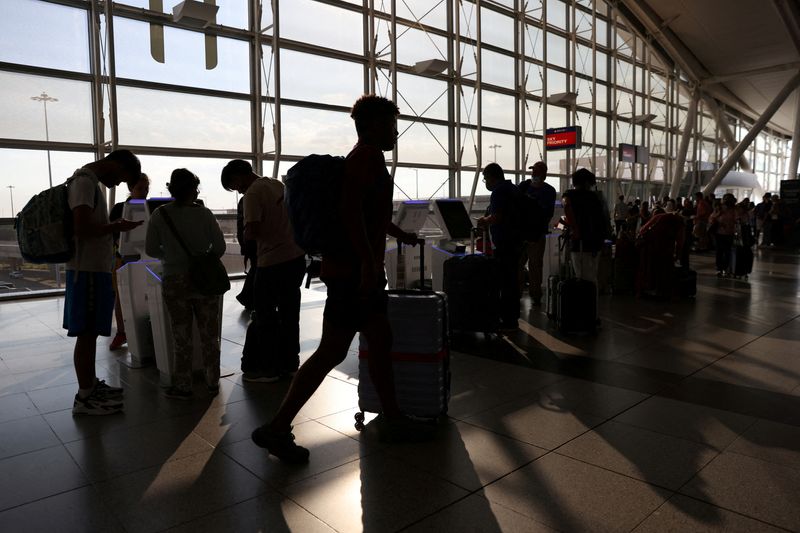By Rajesh Kumar Singh
CHICAGO (Reuters) - Major U.S. airlines are expected to reiterate the strength of travel demand when earnings season gets underway later this week.
But with rising interest rates, high inflation, mounting job losses and turmoil in the banking industry increasing the odds of an economic recession, the spotlight will be on the elasticity of consumer demand.
Pent-up travel demand as well as constrained airline capacity due to shortages of aircraft, spare parts, and labor have, thus far, allowed the industry to avoid the fallout from a slowdown in the broader economy.
The question remains how long this travel boom will last.
"The fallout from the recent banking turmoil and rising interest rates does in our view skew risk to the downside," said Christopher Stathoulopoulos, an analyst at Susquehanna Financial Group.
Chief executives of major carriers last month rushed to reassure jittery investors after a profit warning from United Airlines stoked worries about the industry's pricing power.
The industry has been leaning on soaring consumer demand to mitigate higher labor and fuel costs with higher fares.
Yet, Delta Air Lines (NYSE:DAL), which kicks off the earnings season on Thursday, has said its first-quarter earnings would suffer due to a run-up in operating costs after its new contract deal with pilots. The Atlanta-based carrier is expected to report a profit of 30 cents a share.
Chicago-based United, which is due to report its first-quarter result next week, is tipped to post a loss of 66 cents a share due to higher costs from a potential contract deal with pilots.
Analysts at Moody's (NYSE:MCO) Investors Service estimate labor expense for U.S. carriers will increase by 19% this year.

Meanwhile, surprise output cuts by OPEC+ oil producers earlier this month are expected to drive up fuel bills for airlines, hurting their profits.
"The price elasticity of demand over economic cycles will be the ultimate arbiter of the industry's ability to cover increasing costs," Moody's said.